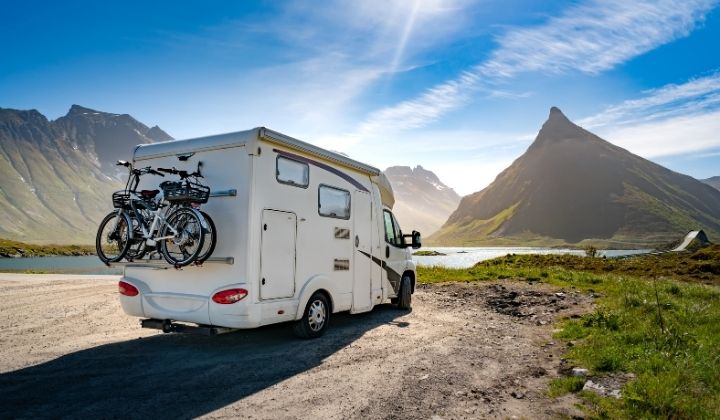This summer, we saw many families hitching up RV’s and hitting the road in an attempt to enjoy the summer while observing COVID-19 restrictions. After all, heading out into the woods is a good way to maintain social distancing! With an RV, it is possible to extend and enjoy the camping season well into the fall months. Here are some timely tips as many escape on their autumn wilderness excursions.
For those who are new to the RV world, there are a variety of vehicles that can be classified as RVs such as motorhomes, fifth wheels, travel trailers, and pop-up tent trailers. For the purpose of this blog post, we will focus mainly on travel trailers which are towed behind your motor vehicle.
Unlike motor homes, travel trailers are not classified as “motor vehicles” and are not required to be separately insured as such under the Insurance Act. Travel trailers do not have engines and are not self-propelled. Typically, the automobile insurance that covers the tow vehicle will extend to the trailer (for liability coverage). That said, many who rent or own these trailers often insure the trailer itself against property damage, fire and theft. Travel trailers also need to be plated with valid trailer classified licence plates.
Before you purchase or rent a travel trailer, there are some important safety considerations such as towing capacity, lighting and signals, and braking ability.
Towing Capacity – Ensure that the vehicle you intend to use as a tow vehicle is rated to tow the weight of the travel trailer and is equipped with the appropriate towing hitch as well as light and signal connections. Before heading out, you should know the dry weight of the trailer and the approximate weight when loaded. All trailers will influence the handling of the tow vehicle but a trailer that exceeds the tow capacity can cause dangerous situations leading to preventable accidents.
Control and Braking Power – Even if the trailer is within the capability of the tow vehicle, it will need added braking power to ensure the trailer responds appropriately and can come to a safe and complete stop. An electric break controller is a device that is wired into the braking system on the tow vehicle that communicates with the brakes installed on the trailer. When you press the brakes on the tow vehicle, it also engages the brakes on the trailer allowing both vehicles to simultaneously slow down and stop within an acceptable distance. For most trailers, a brake controller is a mandatory piece of equipment and should not be towed without one.
An additional piece of towing equipment that provides added control and handling is a weight distribution hitch and sway bars. This is a device that attaches or links between the tow hitch and the travel trailer that evenly distributes the weight of the trailer across the axels of the tow vehicle and keeps the vehicle and trailer in-line as they travel down the road. A sway bar usually is a component of the weight distribution system that prevents the trailer from excessive swaying when changing lanes, passing large transport trailers or encountering strong side-winds. You should also be mindful of the cargo weight and how it is distributed inside of the trailer as an uneven load can contribute to the sway and control of the trailer.
Other Considerations – Travel trailers have inherent dangers such as carrying propane tanks that are required to run appliances such as the furnace and water heater. It is recommended to keep the propane gas tank turned off while traveling to prevent a dangerous gas leak in the event of an accident.
Regardless of your whether you are new to RVing or a seasoned veteran, safety should always be top of mind. Be safe and enjoy the RV life!


